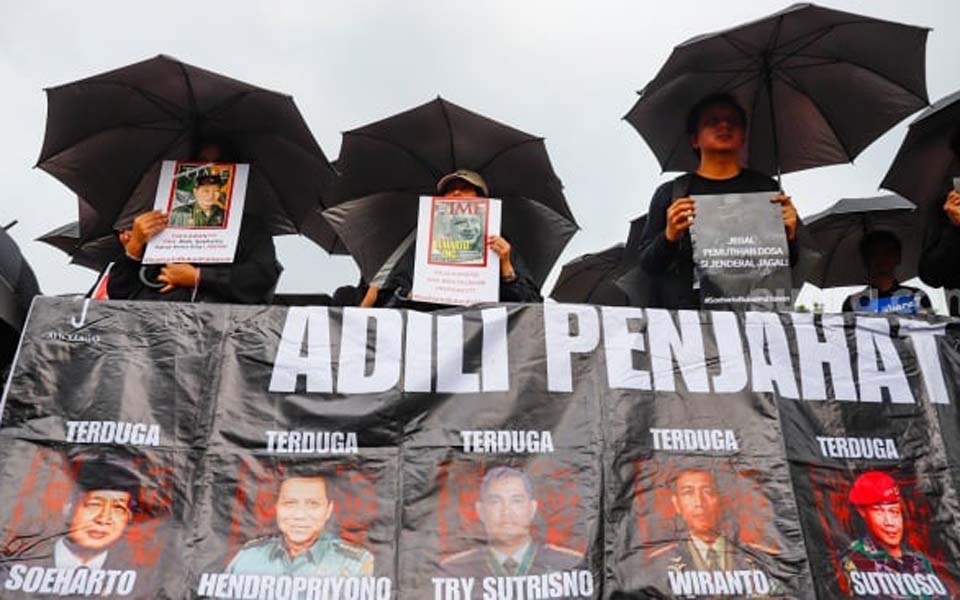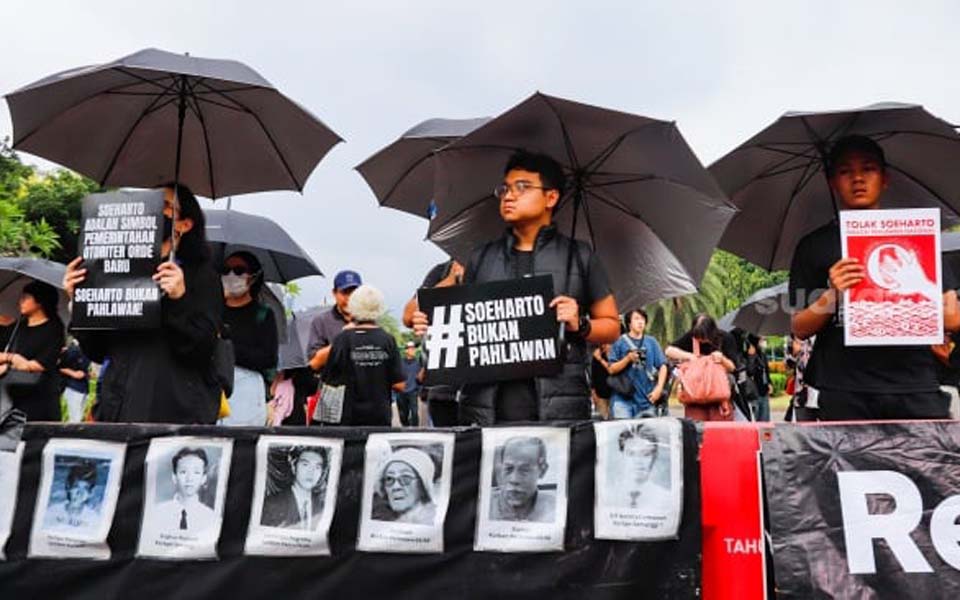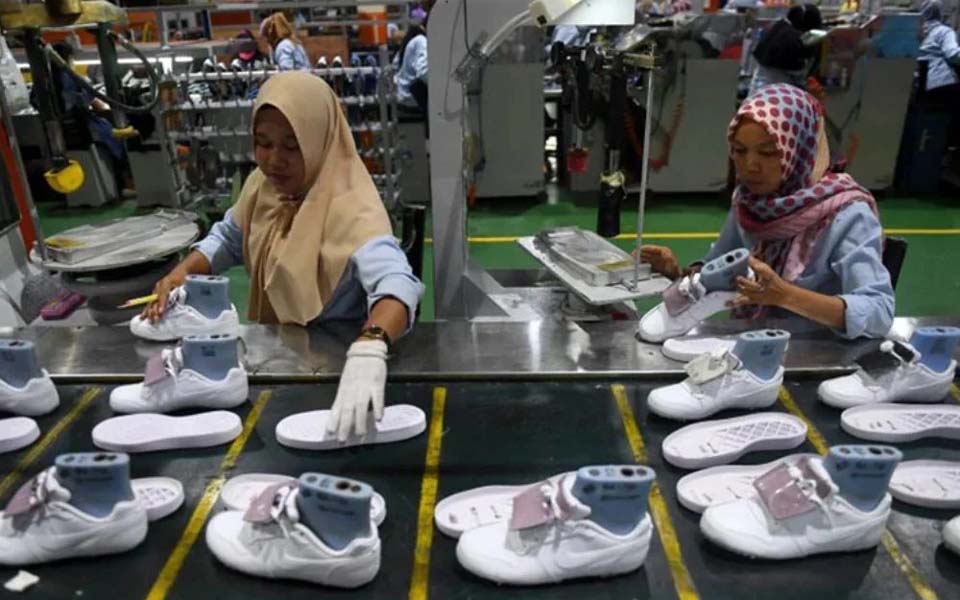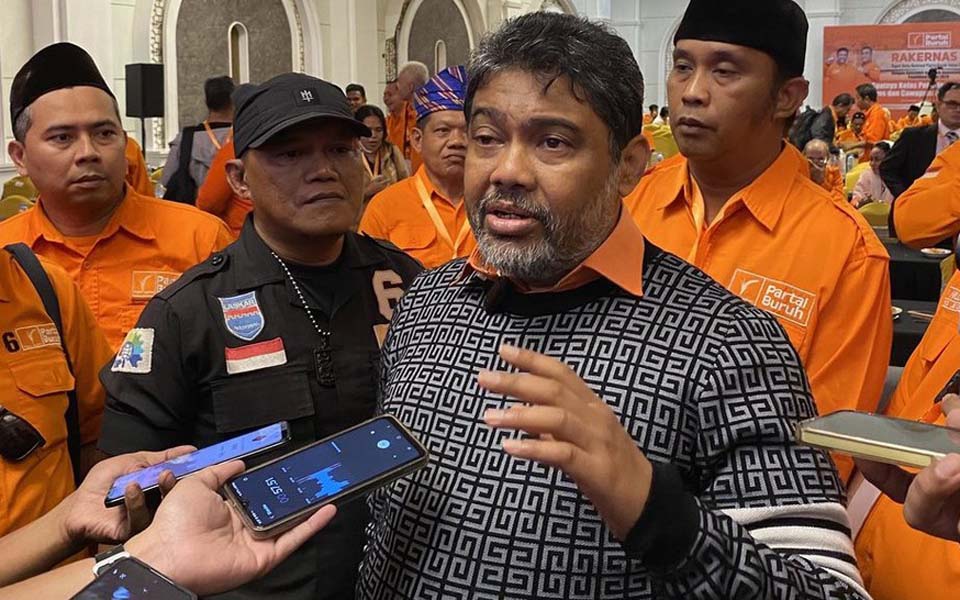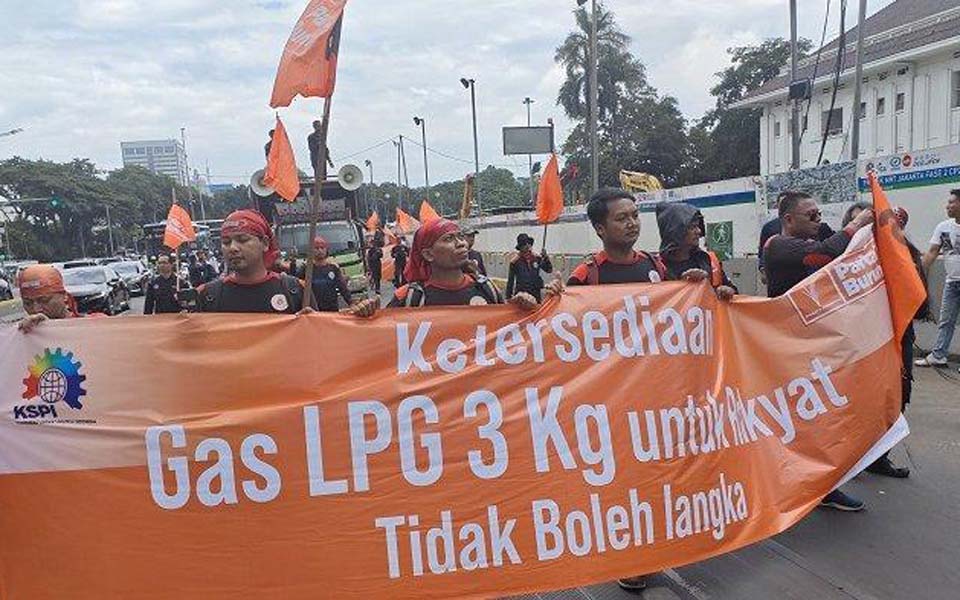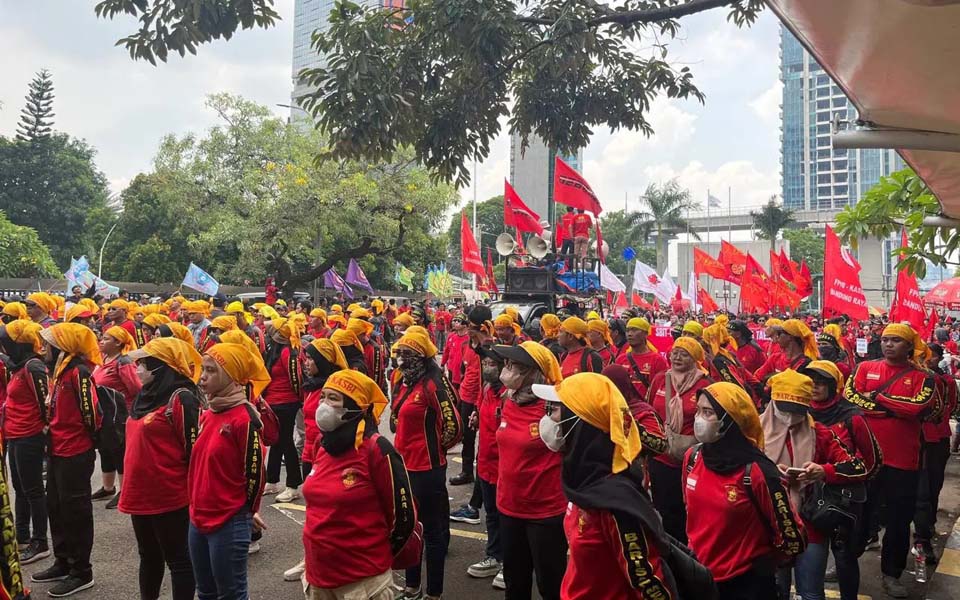Surya Anta – The term red trade union is perhaps one that seems rather odd and worthy of debate. But the use of the term red trade union is indeed a reality in Indonesia. Odd and debatable, because in general the international labor movement does not distinguish trade unions based on its political "colors", but on two things: reformist or yellow (pro business) labor unions.
Today in Indonesia, we can see that the various red trade unions are not small in number. There is the Indonesian Trade Union Congress Alliance Confederation (KASBI), the biggest red labour confederations. Then there is the Indonesian Labor Struggle Confederation (KPBI), the National Labour Movement Centre (SGBN), the National Trade Union Confederation (KSN), Association of Indonesian Trade Unions (GSBI), the Solidarity Alliance for Labour Struggle (GSPB), the Populist Democratic Trade Union (SEDAR) and so forth.
These individual trade unions have their own political priorities. Some are preparing plans to form a political party, as is being done by the KPBI at the moment through a plan to acquire the Labour Party and the Indonesia People's Home. Likewise with the KSN and the Indonesian People's Movement Confederation (KPRI). Others meanwhile are aiming to consolidate democratic and left politics. There are those also who are busy their own organisational strength.
Red trade unions are not a new phenomena. During the era of Indonesia's founding president Sukarno there was the All Indonesian Central Labour Organisation (SOBSI), which was under the influence of the Indonesian Communist Party (PKI). Then there was the Indonesian Republic Central Labour Organisation (SOBRI), which was the labour wing of a party established by Tan Malaka, the Murba Party. Then the Indonesian Populist Labour Union (KBKI), which was close to Sukarno's Indonesian National Party (PNI).
After the "coup d'etat" spread post September 30, 1965, the majority of large red trade unions were paralyzed. In practice, during the early period of Suharto's New Order regime, there were no red trade unions. There was not even any labour movement in general.
The New Order only allowed one trade union organisation, namely the All Indonesian Workers Union (SPSI), which was initially named the All Indonesian Labour Federation (FBSI). The term "labour" was removed and replaced by "pekerja" and "karyawan", which are generally translated in English as "employee". This was in accord with the concept of Pancasila Industrial Relations (HIP), namely harmony between employers, employees and the government.
The Indonesian Center for Labour Struggle (Pusat Perjuangan Buruh Indonesia, PPBI) was the first red trade union to be established during the New Order regime. However the PPBI was not the first non-SPSI trade union. The first project to build a non-SPSI trade union was imitated through the Independent Solidarity Trade Union (SBMKS) in 1990, in which the renowned human rights advocate H.J.C. Princen was also involved. Then there was the Bogor Genuine Trade Union (SBSB) and the Tangerang Trade Union (SBT), the development of which remains unclear. Then in 1992 the Indonesian Prosperous Labour Union (SBSI) was established on the initiative Abdurrahman "Gus Dur" Wahid, Mochtar Pakpahan and Rachmawati Soekarnoputri.
The PPBI was born after its first congress was organised on October 23, 1994, in Ambarawa, Central Java. The PPBI developed out of the deployment of student organisers – the majority of which came from the group Indonesian Students Solidarity for Democracy (SMID) – in to industrial areas to organise workers.
SMID was not actually the only student group organising workers at the time. There were clandestine student groups also organising workers. There were even some who registered as factory workers at one company so they could make contact with workers.
Organising was carried out in several places such as the Tandes area of Surabaya (East Java), the company PT Sritex in Sukoharjo (Central Java) and PT Great River in Tangerang (near Jakarta). Street poet Wiji Thukul – who was later disappeared by the military – was once involved in organising workers along with his student friends from SMID at PT Sritex. He suffered injuries to his left eye after being struck by a rifle butt by a soldier during a demonstration along with thousands of PT Sritex workers.
PT Sritex a textile company that produces Indonesian military uniforms and exports uniforms for several other countries. The PPBI was led by Dita Indah Sari, who at the time was a student at the University of Indonesia legal faculty. Unfortunately, Sari has now become an expert staff member at the Ministry of Labour.
There was much criticism against the PPBI's methods, such as the PPBI was seen as too radical, or only functioned as a pressure group or aggressor, and was not led by workers but an organiser who was a student. The PPBI however was the first trade union project that attempted to get away from the conventional, mainstream trade unions, namely those only working to improve workers' welfare.
The PPBI did not separate the economic struggle and the political struggle. Moreover during the era of the New Order dictatorship at the time, it was difficult to make gains in purely economic struggles because every time there was a demonstration it would be confronted by attacks from the military and police.
Therefore, broadening democracy by overthrowing the New Order government, Suharto, became a part of and inseparable from the demands of the economic struggle. For example, the PPBI also took up demands like abolish the dual socio-political function (dwi-fungsi) of ABRI – the Indonesian armed forces, now called the TNI. This demand infuriated government officials in the New Order administration at the time.
The PPBI's struggle however did not continue for long. Following the declaration of the People's Democratic Party (PRD) at the Indonesian Legal Aid Foundation (YLBHI) offices in Jakarta on July 22, 1996, the PPBI was disbanded by the Suharto regime. This was because the PPBI was affiliated with the PRD which was accused of being the mastermind behind the July 27, 1996 riots in Jakarta.
The PPBI however did made an important mark in the history of the Indonesian labour movement following the overthrow of the New Order. Even though former PPBI leader Sari now often positions herself to defend pro-employer government policies. The important lesson from the PPBI however is that trade unions cannot be allowed to separate themselves from the political struggle, in this case the struggle for democracy. And they cannot just restrict themselves to the economic struggles of workers.
The PPBI with its radical methods took on the role of pioneers in the labour movement in the struggle to overthrow tyranny.
-- Surya Anta is a leading activist with the Indonesian People's Center of Struggle (PPRI).
[Translated by James Balowski. The original title of the article was "PPBI, Serikat Buruh "Merah" Pertama Masa Orde Baru".]
Source: http://www.solidaritas.net/2017/01/ppbi-serikat-buruh-merah-pertama-masa-orde-baru.html






